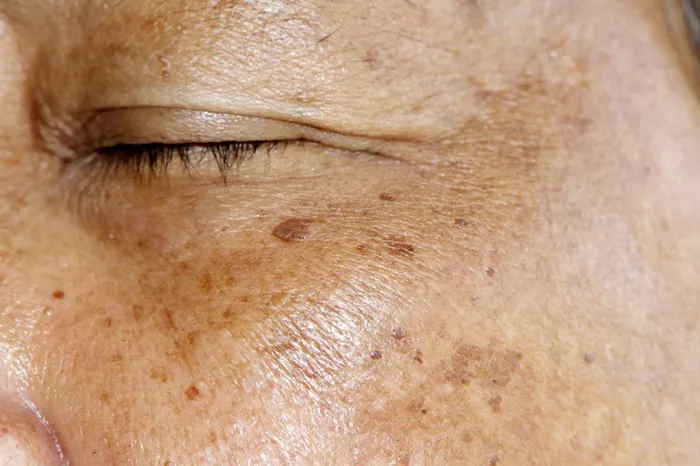Severe chronic depression, also known as Major Depressive Disorder (MDD) or clinical depression, is a mental health condition characterized by a persistently low mood and a lack of interest in activities that were once found enjoyable. This condition is more than just feeling sad or going through a rough patch; it is a debilitating illness that can significantly impair one’s daily life. This article delves into the nature of severe chronic depression, its symptoms, causes, diagnosis, treatment options, and the impact it has on individuals and society.
Understanding Severe Chronic Depression
Severe chronic depression is a pervasive and persistent mood disorder that affects how a person feels, thinks, and handles daily activities. Unlike temporary emotional responses to life’s challenges, depression involves periods of intense sadness and hopelessness that last for weeks, months, or even years. The American Psychiatric Association (APA) defines MDD as having a depressive episode that lasts at least two weeks, but many people experience it much longer.
Symptoms of Severe Chronic Depression
The symptoms of severe chronic depression can vary from person to person, but common signs include:
Persistent Sadness or Low Mood: Feeling sad, empty, or hopeless for most of the day, nearly every day.
Loss of Interest or Pleasure: A significant reduction in interest or pleasure in all, or almost all, activities.
Weight Changes: Significant weight loss when not dieting, weight gain, or changes in appetite.
Sleep Disturbances: Insomnia or sleeping too much (hypersomnia).
Psychomotor Changes: Observable slowing down of thought and physical movement or agitation and restlessness.
Fatigue or Loss of Energy: Feeling tired and having a lack of energy nearly every day.
Feelings of Worthlessness or Guilt: Excessive or inappropriate guilt and feelings of worthlessness.
Cognitive Impairments: Difficulty thinking, concentrating, or making decisions.
Recurrent Thoughts of Death: Thoughts of death or suicide, or having a suicide plan or attempt.
Causes of Severe Chronic Depression
The exact cause of severe chronic depression is unknown, but it is believed to result from a combination of genetic, biological, environmental, and psychological factors.
Genetics: Depression can run in families, suggesting a genetic link. Studies have shown that individuals with a family history of depression are at a higher risk of developing the condition.
Brain Chemistry: Neurotransmitters, chemicals in the brain, play a significant role in mood regulation. Imbalances in these chemicals can contribute to depression.
Hormonal Imbalances: Changes in the body’s balance of hormones may be involved in triggering depression. This can occur during events such as pregnancy, postpartum period, thyroid problems, menopause, or other conditions.
Environmental Factors: Life events such as trauma, loss of a loved one, a difficult relationship, or financial problems can trigger depression.
Psychological Factors: Individuals with low self-esteem, being overly dependent, self-critical, or pessimistic may be more prone to depression.
See Also: Which Vitamin D for Seasonal Depression?
Diagnosis of Severe Chronic Depression
Diagnosing severe chronic depression involves a thorough evaluation by a healthcare professional. This typically includes:
Medical History and Physical Exam: To rule out medical conditions that may cause depressive symptoms.
Psychiatric Evaluation: A detailed discussion of symptoms, thoughts, feelings, and behavior patterns.
Diagnostic Criteria: According to the Diagnostic and Statistical Manual of Mental Disorders (DSM-5), a person must have five or more symptoms of depression, including either a depressed mood or loss of interest or pleasure, for at least two weeks.
Treatment of Severe Chronic Depression
Severe chronic depression is treatable, and the earlier treatment begins, the more effective it can be. Treatment options include:
Medications: Antidepressants are commonly prescribed to help balance neurotransmitters in the brain. Common classes of antidepressants include Selective Serotonin Reuptake Inhibitors (SSRIs), Serotonin-Norepinephrine Reuptake Inhibitors (SNRIs), Tricyclic Antidepressants (TCAs), and Monoamine Oxidase Inhibitors (MAOIs).
Psychotherapy: Also known as talk therapy, psychotherapy involves working with a mental health professional to address the emotional aspects of depression. Cognitive Behavioral Therapy (CBT), Interpersonal Therapy (IPT), and psychodynamic therapy are effective approaches.
Lifestyle Changes: Regular physical activity, a healthy diet, adequate sleep, and stress management techniques can help alleviate symptoms.
Electroconvulsive Therapy (ECT): For severe cases of depression that do not respond to other treatments, ECT may be considered. This involves electrically induced seizures to provide relief from severe symptoms.
Transcranial Magnetic Stimulation (TMS): A non-invasive procedure that uses magnetic fields to stimulate nerve cells in the brain.
Preventing Severe Chronic Depression
Early Intervention
Early intervention is key to preventing the progression of depression. Identifying and addressing depressive symptoms early can prevent them from becoming severe and chronic. Regular mental health check-ups and screenings can help detect depression at an early stage.
Education and Awareness
Raising awareness about depression and educating the public about its symptoms and treatment options can help reduce stigma and encourage individuals to seek help. Mental health education should be integrated into school curricula, workplace wellness programs, and community initiatives.
Reducing Stigma
Stigma surrounding mental health can prevent individuals from seeking the help they need. Efforts to reduce stigma through public awareness campaigns, open discussions, and promoting positive portrayals of mental health in the media can make a significant difference.
Conclusion
Severe chronic depression is a complex and debilitating condition that affects millions of people worldwide. Its impact extends beyond the individual, affecting families, communities, and society as a whole. Understanding the symptoms, causes, and treatment options for severe chronic depression is crucial for providing effective support and care. By raising awareness, reducing stigma, and ensuring access to mental health resources, we can help individuals with severe chronic depression lead healthier, more fulfilling lives.
[inline_related_posts title=”You Might Be Interested In” title_align=”left” style=”list” number=”6″ align=”none” ids=”10758,10748,10685″ by=”categories” orderby=”rand” order=”DESC” hide_thumb=”no” thumb_right=”no” views=”no” date=”yes” grid_columns=”2″ post_type=”” tax=””]


































